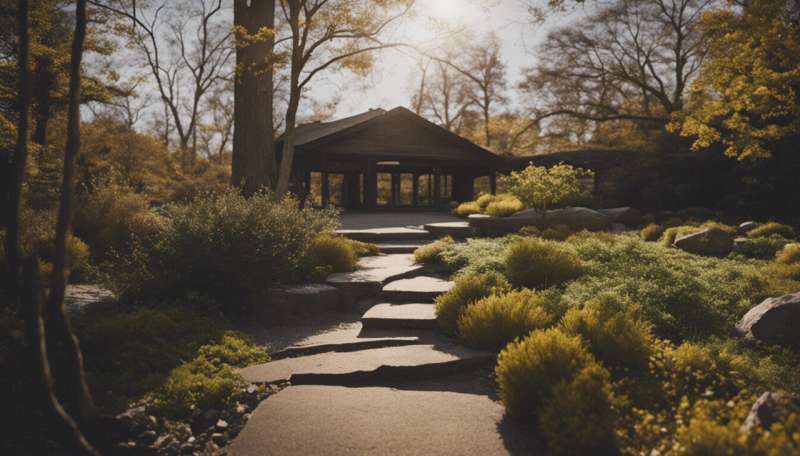This article has been reviewed according to Science X's editorial process and policies. Editors have highlighted the following attributes while ensuring the content's credibility:
fact-checked
trusted source
proofread
Study finds dedicated nature play areas underutilized for teaching curriculum at schools

As primary schools continue to invest in purpose-built nature play spaces, experts are encouraging teachers to deliver more of the curriculum in outdoor areas, to boost students' well-being and development and to maximize the use of play spaces.
In a new University of South Australia study, published in Children, Youth and Environments, researchers found that dedicated nature play areas are underutilized at schools, particularly when it comes to teaching aspects of the curriculum.
Assessing responses from 52 public primary schools in South Australia, researchers found that 63% of schools have a purpose-built nature play space, with another 25% planning or building one. They also found that most schools use these spaces mostly for play, as opposed to learning.
UniSA researcher Dr. Nicole Miller says that shifting some curriculum-based learning outdoors could benefit students.
"There is a growing body of evidence that shows how nature-based play and learning can deliver significant benefits for children's health, well-being and development," Dr. Miller says.
"Yet these purpose-built nature play spaces and natural outdoor spaces are primarily being used for play, with very limited use to deliver curriculum learning.
"Research shows that nature-based play and learning can improve children's mental health and cognitive development.
"If schools and teachers can find ways to increase teaching core subjects in the outdoors, it's likely that the children will be more engaged and connected to their learning."
The study acknowledges that schools and teachers are juggling multiple priorities and possible barriers to outdoor learning include a crowded curriculum and a lack of teacher knowledge and confidence in their abilities to adapt learning in vastly different ways.
"We know schools value and are investing in nature-based learning spaces. But to fully embrace nature play areas for increased learning opportunities, schools must try to address these barriers," Dr. Miller says.
"Importantly, this study found that purpose-built nature play spaces were present in schools regardless of their socio-economic status.
"We know that nature-based play and learning can benefit students. This study shows that schools across the State are investing in purpose-built nature spaces. The next step is to increase investment in teachers so that we boost their skills and confidence to deliver the curriculum in these amazing outdoor areas."
More information: Nicole C. Miller et al, Characterizingthe Available Outdoor Spaces and Their Use in South Australian Public Primary Schools, Children, Youth and Environments (2023). DOI: 10.1353/cye.2023.0003 , journals.uc.edu/index.php/cye/article/view/6970
Provided by University of South Australia




















